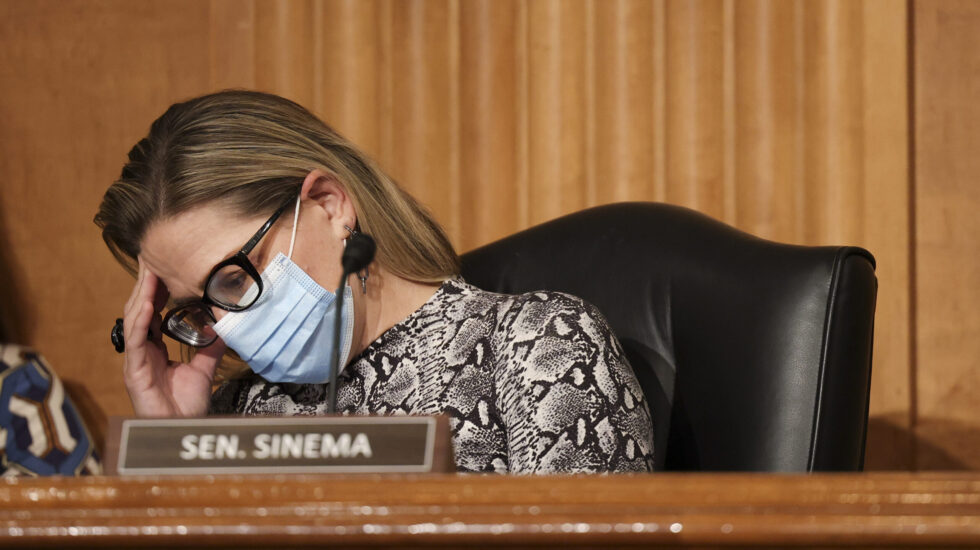Sen. Kyrsten Sinema, the enigmatic Democrat from Arizona, has lost the support of EMILY’s List, a pro-choice group dedicated to getting women elected to office, after she refused to change Senate rules in order to pass voting rights legislation.
EMILY’s List was Sinema’s biggest donor – by far – during her 2018 campaign. They gave the Arizonan $405,588, nearly double the next most generous contributor.
“We believe the decision by Sen. Sinema is not only a blow to voting rights and our electoral system but also to the work of all of the partners who supported her victory and her constituents. We will no longer be able to endorse Sen. Sinema moving forward,” the group said in a statement issued Thursday.
Likewise, NARAL, another pro-choice group, said they were changing their endorsement criteria and they’ll “only endorse U.S. senators who support changing the Senate rules to pass the critical legislation that will protect voting rights.”
Earlier this week, Laphonza Butler, the president of Emily’s List, predicted that “Senator Sinema’s decision to reject the voices of allies, partners and constituents who believe the importance of voting rights outweighs that of an arcane process means she will find herself standing alone in the next election.”
Sinema responded on Tuesday night, releasing a statement reading, “Different people of good faith can have honest disagreements about policy and strategy. Such honest disagreements are normal, and I respect those who have reached different conclusions on how to achieve our shared goals of addressing voter suppression and election subversion, and making the Senate work better for everyday Americans.”
Sinema and West Virginia Senator Joe Manchin, a fellow Democrat, have provoked ire from across the political left for their commitment to preserving the filibuster, a procedural rule that Republicans have used to block much of President Biden’s agenda, including expanding voting rights.
“History will not remember them kindly,” Martin Luther King III said over the weekend.
Sen. Bernie Sanders indicated that he might support primary challengers to the two moderate Senators, a rare move among Senate colleagues.



